Are you feeling stuck in your spiritual journey? Have you been meditating diligently but yearning for something more? If so, you’re in the right place. While meditation is an incredibly powerful practice, there are many other profound ways to nurture your spirituality and inner growth. Let’s explore some spiritual practices beyond meditation.
These spiritual practices for well-being can help you deepen your connection to the sacred, cultivate greater well-being, and unlock your fullest potential. From yoga and energy healing to community service and expressive arts, there’s something here for everyone.
Get ready to infuse your life with more meaning, joy, and spiritual richness!
9 Powerful Spiritual Practices Beyond Meditation
Here are some of the most beneficial and effective spiritual practices beyond meditation that you can practice to improve your life –
1. Mindful Spiritual Practices
Spirituality isn’t just about sitting on a cushion and meditating – it’s a way of being that can infuse every aspect of our lives. One powerful practice is to bring a greater sense of mindfulness and presence to our daily routines and activities. Mindful spiritual practices for well-being could look like –
- Slowing down and fully savoring your morning cup of tea
- Noticing the beauty of the changing seasons as you take a walk
- Pausing to take a few deep breaths before a meeting
By tuning into the sacredness of the ordinary, we can convert even the most mundane tasks into spiritual rituals. Mindful spiritual practices for well-being help us stay grounded, cultivate gratitude, and find the divine in the details of our everyday lives.
Related: How To Meditate Without Meditating: 7 Alternative Forms of Meditation
Mindful spiritual practices for well-being remind us that spirituality isn’t something separate from the rest of our experience – it’s woven into the fabric of our daily existence.
2. Yoga for Mental Health
Yoga is one of the best spiritual practices beyond meditation. It is so much more than just physical postures – it’s an integrated system for cultivating well-being on all levels: physical, mental, emotional, and spiritual. While the physical practice of yoga can be incredibly beneficial for our bodies, the mental and spiritual aspects may be even more profound.
Through practices like breath work, meditation, and mindful movement, yoga for mental health can help alleviate stress, anxiety, and depression, while also fostering greater self-awareness, emotional regulation, and connection to the divine. Many people report experiencing profound states of peace, clarity, and transcendence during their practice of yoga for mental health.
Beyond the mat, the philosophical teachings of yoga for mental health can provide a rich framework for navigating life’s challenges and uncertainties with more wisdom, compassion, and equanimity. By tapping into the deeper wisdom of yoga, we can uncover our essential wholeness and realize our highest human potential.
3. Energy Healing for Spiritual Growth
Energy healing modalities like Reiki, Qi Gong, and sound healing offer powerful pathways for spiritual growth and transformation. These practices work directly with the subtle energetic fields of the body and psyche to clear blockages, balance the nervous system, and align us with our highest purpose.
Through energy healing for spiritual growth, we can access deeper levels of self-awareness, clarity, and intuition. Many people report feeling a profound sense of peace, expanded consciousness, and connection to the divine after an energy healing session. Energy healing for spiritual growth can also help us process emotions, release trauma, and cultivate greater self-love and acceptance.
Beyond the personal benefits, energy healing can also be a profound spiritual practice. By attuning to the interconnected web of life force energy that permeates all of creation, we can deepen our sense of unity with the natural world and the larger cosmic order. Energy healing for spiritual growth can catalyze a profound shift in our worldview and our relationship to the sacred.
4. Cultivating Core Values
Spiritual growth isn’t just about acquiring new knowledge or having transcendent experiences – it’s also about the ongoing process of aligning our thoughts, actions, and lifestyle with our deepest values and principles. By clarifying, embodying and cultivating core values, we can infuse our lives with more meaning, integrity, and purpose.

This practice of cultivating core values might involve reflecting on what truly matters most to us, and then making conscious choices that honor those values – whether it’s spending more time in nature, being of service to our community, or simplifying our lives to reduce our environmental impact. It’s about getting clear on who we want to be, and then courageously living into that vision.
Related: What Is Sound Healing Therapy? How Sound Can Boost Your Mental Health And Improve Your Life
Cultivating core values is a powerful spiritual practice because it requires us to get real with ourselves, to confront our shadows and limitations, and to make tough decisions that may require personal sacrifice. But in doing so, we unlock new levels of authenticity, wholeness, and self-actualization.
5. Community and Service
While spirituality is often depicted as a solitary, inward-focused journey, the truth is that we are fundamentally interconnected beings. Our spiritual growth is intricately woven with our relationships, our communities, and our service to the world.
Engaging in a spiritual community and service can be a profound source of support, belonging, and collective transformation. Whether it’s joining a meditation group, a faith-based congregation, or an intentional living community, being in the company of others who share our values and aspirations can nourish our souls and accelerate our inner growth.
Likewise, finding ways to be of service – whether through volunteering, activism, or simply acts of generosity in our daily lives – can awaken our sense of purpose, expand our empathy and compassion. It can connect us to something greater than ourselves. When we direct our energy outward to uplift and support others, we paradoxically deepen our connection to the sacred.
Both community and service remind us that we are not alone on this journey, and that our individual transformation is inextricably linked to the collective transformation of humanity and the planet. This is why volunteering is considered as one of the best spiritual practices beyond meditation.
6. Expressive Arts
Apart from community and service, creative and expressive arts offer a powerful portal for spiritual exploration and self-discovery. Whether it’s painting, writing, dancing, or making music, the process of artistic expression can help us access deeper levels of intuition, emotion, and connection to the divine.
When we engage in expressive arts, we enter a state of flow that transcends the egoic mind and allows us to tap into the wellspring of our creative source. This can catalyze profound insights, release pent-up emotions, and spark moments of transcendent beauty and wonder.
Beyond the personal benefits, the arts can also be a potent means of spiritual and social transformation. By channeling our creative energies into projects that uplift the human spirit and address the challenges of our time, we can use art as a vehicle for collective awakening and healing.
Ultimately, the spiritual practice of expressive arts is about reclaiming our innate capacity for imaginative play, sensory delight, and mystical insight. It’s about allowing our souls to be seen, heard, and celebrated.
7. Nature Immersion
For millennia, human beings have sought spiritual sustenance and communion with the natural world. And for good reason – there is something deeply nourishing and profound about immersing ourselves in the rhythms, beauty, and primal energies of the more-than-human realm.
Related: Thrive In Cosmic Vibrations: Why You Must Start Chanting Mantras According To Science
Whether it’s taking a solitary hike in the woods, swimming in a pristine lake, or gardening in our own backyard, time spent in nature can quiet the chatter of the mind. It can soothe the nervous system, and attune us to the underlying unity that permeates all of creation. In these sacred spaces, we can access deeper levels of peace, awe, and interconnectedness.
Beyond the personal benefits, a spiritual practice of nature immersion can also catalyze a deeper sense of environmental stewardship and eco-consciousness. When we directly experience the sacredness of the natural world, we become more compelled to protect and preserve it. In this way, our individual spiritual growth becomes inextricably linked to the collective flourishing of the Earth.

8. Breath work
Breath is the essential life-force that animates our bodies and psyches. It is our constant companion, yet most of us take it for granted and breathe in a shallow, unconscious way. Engaging in conscious, therapeutic breathwork can be a profound spiritual practice that promotes healing, transformation, and expanded awareness. And that’s why it is among the most effective spiritual practices beyond meditation.
Through the intentional manipulation of the breath – whether it’s breath counting, breath pacing, or breath visualization – we can directly influence our physiological and energetic states. This can help us manage stress and anxiety, process difficult emotions, and access altered states of consciousness.
Beyond the practical benefits, the breath can also be a powerful portal for exploring the mysteries of our inner landscape. By attuning to the subtle ebb and flow of the breath, we can cultivate greater self-awareness, presence, and communion with the divine. In this way, breath work becomes a bridge between the material and the mystical, the finite and the infinite.
9. Ritual and Ceremony
Ritual and ceremony are ancient spiritual tools that have the power to transform consciousness, catalyze collective healing, and deepen our sense of connection to the sacred. Whether it’s lighting a candle, chanting a mantra, or participating in a ceremonial cacao circle, these practices tap into the universal human need for meaning, symbol, and sacred space.
Some other examples of empowering ritual and ceremony practices include sacred dance, chanting/singing, drumming, fire ceremonies, labyrinth walking, and ritual baths or purification rites. The specific form is less important than finding practices that resonate with your personal spiritual orientation and needs.
By engaging in ritual, we can step out of the ordinary flow of time and enter a liminal realm of heightened awareness and possibility.
Takeaway
Incorporating these empowering spiritual practices beyond meditation into your daily routine can transform your life in profound ways, extending far beyond the reach of traditional meditation. Whether you’re seeking inner peace, personal growth, or a deeper connection with the universe, these diverse practices offer unique pathways to enrich your spiritual journey.
Embrace them with an open heart and mind, and discover the multitude of ways you can cultivate a more balanced, fulfilling, and spiritually empowered life. Remember, the journey to spiritual enlightenment is personal and ever-evolving – explore these practices and find what resonates most with your soul.
Related: 4 Benefits Of Moving Meditation And How To Do It: Dance Your Stress Away!
Frequently Asked Questions (FAQs):
How can I be mindful outside of meditation?
Be present in daily activities, practice deep breathing, observe your surroundings, engage your senses, and perform tasks with intention.
How do I start spiritual practice?
Begin with self-reflection, explore various practices, set intentions, seek guidance from spiritual mentors, and start with small, consistent steps.
How to practice spirituality daily?
Incorporate gratitude, mindfulness, meditation, prayer, journaling, nature walks, and acts of kindness into your daily routine.


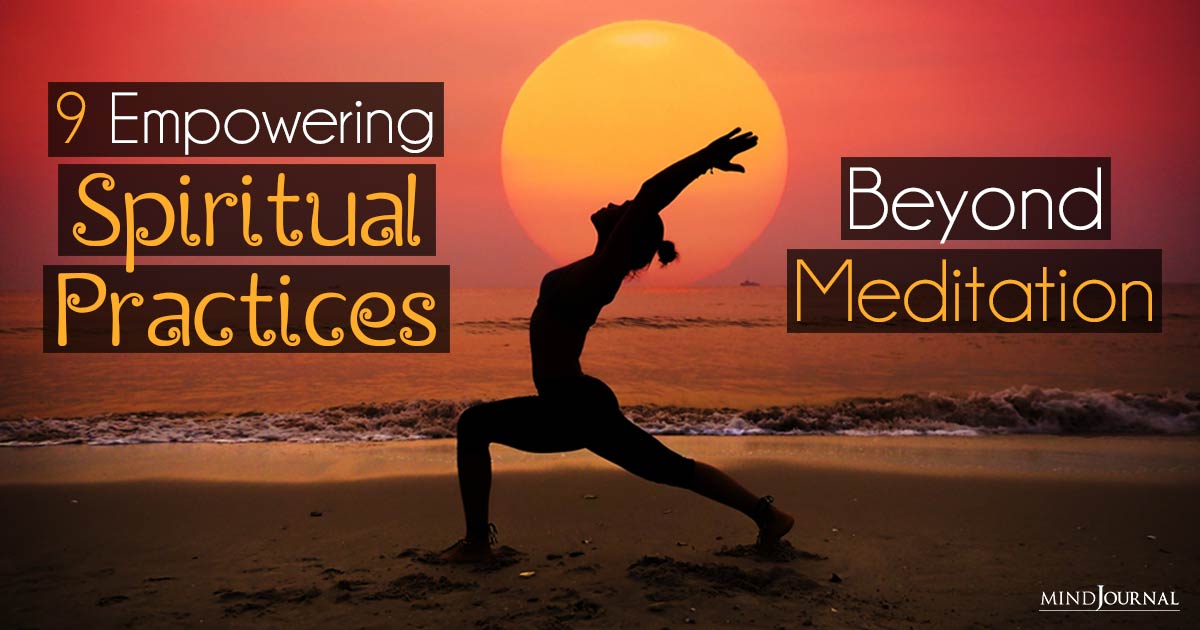

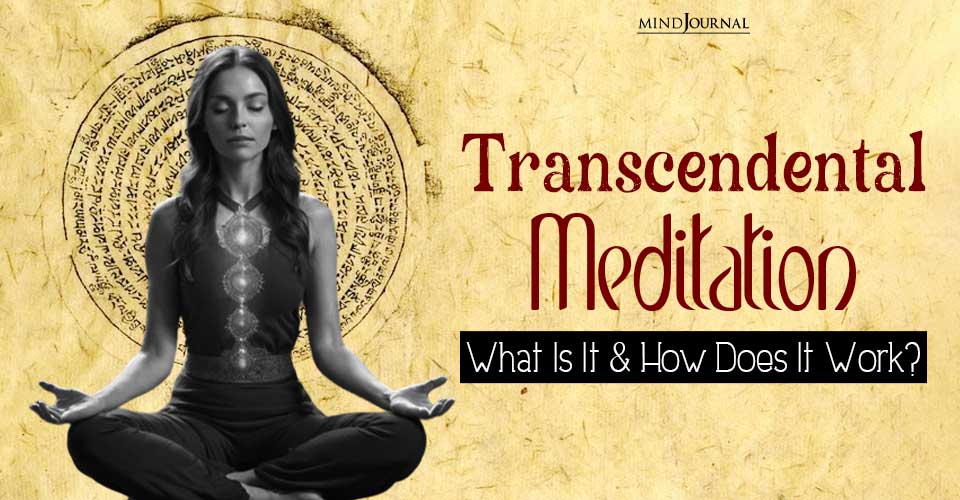
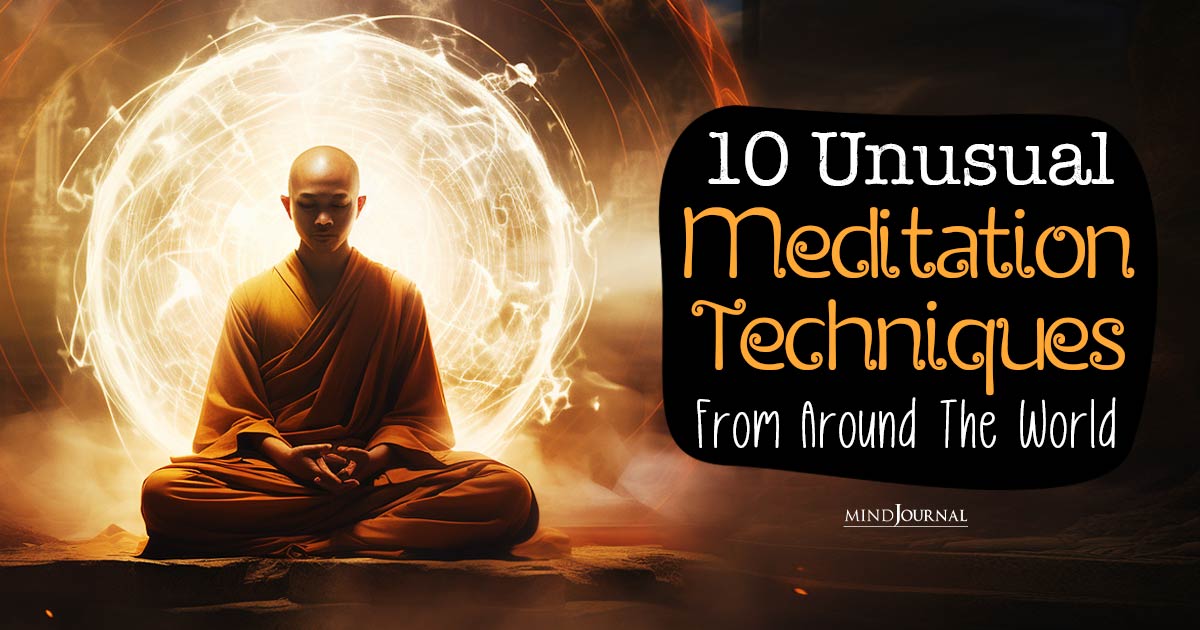
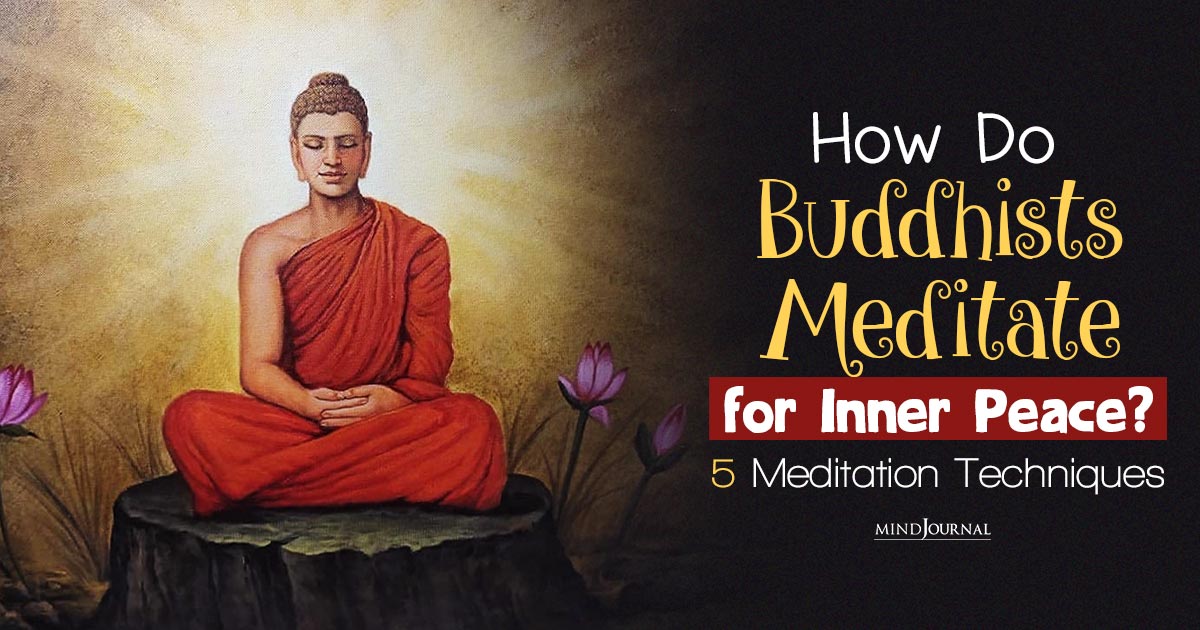


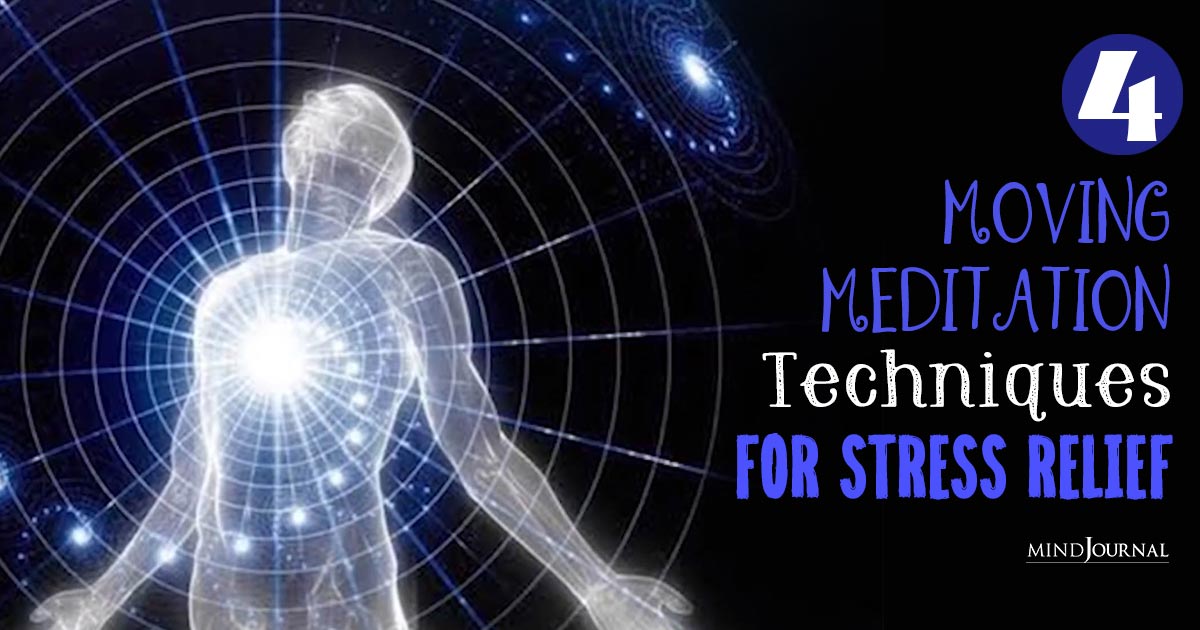
Leave a Reply